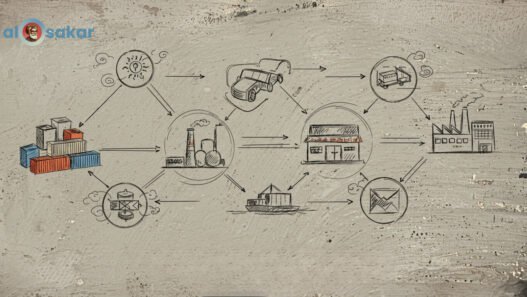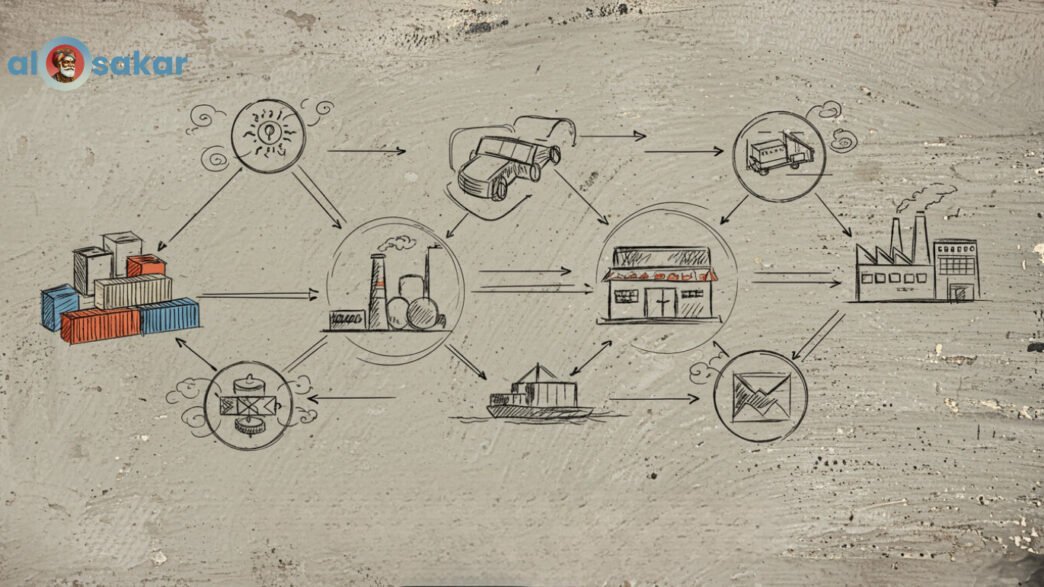TLDR: Agentic systems use AI for autonomous decision-making in retail supply chains, analyzing data to address disruptions. They differ from RPA and copilots through independent operation and offer benefits like improved decision-making, efficiency, and cost savings. Applications include store management, disruption mitigation, and tariff assessment. Strategic use and Microsoft’s Project Sophia emphasize integration with existing business tools for better insights.

Agentic systems offer a transformative approach to enhancing decision-making speed and quality within the retail and consumer goods (RCG) supply chain.These systems, driven by AI, autonomously collect and analyze data to act or recommend actions, addressing the constant changes and external disruptions challenging retailers and consumer goods companies.. Agentic AI gives Large Language Models (LLM) agency and the ability to act autonomously.
Key characteristics of agentic systems
Intelligent agents are autonomous and can operate independently, but they also have the ability to escalate tasks to humans when necessary. These agents are goal-oriented and work to achieve specific objectives. They are context-aware and can interpret data to adjust their actions accordingly. Intelligent agents are also capable of learning and improving their performance based on new data and past results. They can perceive and sense their environment, responding to changes as they occur. Additionally, they have memory and can store information for future use. These agents possess skills and capabilities that enable them to perform tasks, and they can reason and make decisions by processing information.
Agentic systems vs. other technologies
- RPA (Robotic Process Automation): Agentic systems enhance RPA by reasoning over data and using LLMs to extract information, while RPA is rules-based and rigid.
- Copilots: Agents operate autonomously, unlike copilots that assist users in real-time, and can work within Copilot, aligning with Microsoft’s vision of Copilot as the UI for AI.
Applications in the RCG Supply Chain

- Store Performance and Inventory Management: Agents monitor performance data, identify improvement areas, and recommend actions to avoid stockouts or overstocks by analyzing sales, inventory, and promotion data.
- Mitigating Supply Chain Disruptions: Agents analyze customer orders, inventory, and substitution options to allocate inventory by prioritizing orders based on criteria like customer loyalty and order value.
- Tariff Impact Assessment: Agents evaluate and recommend alternative suppliers from different regions to mitigate tariff risks and negotiate better terms with suppliers.
Benefits of Implementing Agentic AI
- Improved Decision-Making: Enables faster and more accurate decisions in supply chain management….
- Increased Efficiency: Automates repetitive tasks and analyzes large datasets for insights.
- Cost Savings: Helps optimize inventory levels, reduce stockouts, and minimize the impact of tariffs..
- Enhanced Agility and Resilience: Facilitates quick responses to supply chain challenges and market changes.
- Scalable Value Chain Optimization: Integrates manufacturing and sales strategies across multiple channels and product lines.
Allocation of Inventory to Mitigate Low CFR
Agentic AI can mitigate challenges such as product shortages and low case fill rates (CFR) resulting from supply chain disruptions. An agent can analyze customer orders, current inventory levels, and product substitution options to identify potential CFR situations1. The agent allocates inventory by prioritizing orders based on predefined criteria such as customer loyalty, customer segmentation, order value, SLA fines, and urgency
To use AI agents strategically, it is important to identify business processes suitable for automation, establish user trust in the agent’s capabilities, and implement clear operational guardrails for data governance, privacy, and security.
Microsoft’s Project Sophia envisions the convergence of agents, copilot, and business applications into an infinite research canvas, enabling users to ask business questions and gain holistic insights. The integration of agentic AI and generative AI into business applications marks a significant shift towards faster, more accurate, and insightful decision-making, paving the way for innovative solutions and increased productivity.
Source: Microsoft blog.




















